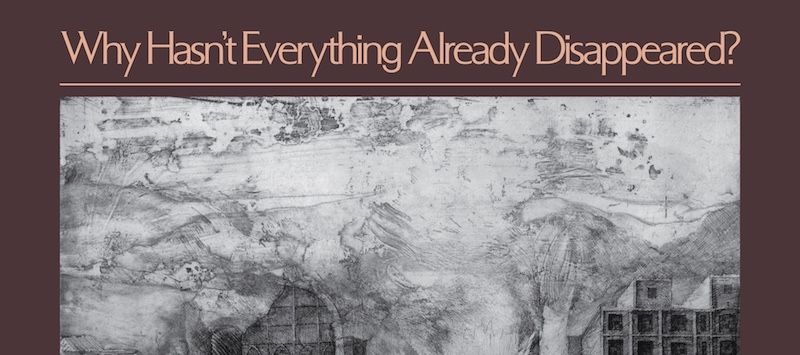Deerhunter shines through the gloom on ‘Why Hasn’t Everything Already Disappeared?’
by Craig Short
2019-02-04

Deerhunter
Why Hasn’t Everything Already Disappeared?
4AD · January 18, 2019

The gloomy, soot-blackened disposition of Why Hasn’t Everything Already Disappeared? stands in sharp contrast to Deerhunter’s previous effort, 2015’s Fading Frontier.
The question we should really ask is “why hasn’t Deerhunter ever released a bad album?” Every vital, exciting indie band eventually runs out of steam and starts relying on expensive producers to make them interesting again (spoiler alert: this technique almost never works). After 18 years and eight albums, Bradford Cox and his band have earned the right to slack off a little. They, however, have other ideas, and I mean that in the most literal way: they just keep coming up with new concepts, rants, and sonic worlds to explore. Why Hasn’t Everything Already Disappeared? treads compelling new ground, but still delivers delicious psychedelic noise-pop jams in a way that only Deerhunter can.
Sonically, the record is magnificent. Buzzsaw synths, woozy guitars, and prissy harpsichords coalesce around the gritty, distorted propulsion of Moses Archuleta’s drumming. Bradford Cox, like always, moves the heartstrings with his voice, his drowsy tenor oozing drama and popping with highly articulated consonants that ring like bolts in a bucket. Particular credit should be given to Cate LeBon’s expert production. Even as countless sounds and textures swoop in and out of the music with reckless abandon, the mix remains crisp, clear, and punchy. It’s a far cry from some of the band’s earlier delay-drenched dreamscapes.
Death, fear, and nostalgia rear their ugly heads throughout the album. These are all familiar themes in Bradford Cox’s freaky gothic lyricism, but he employs them with newfound resignation. The world is crumbling, he says. People work their lives away for some great cause, only to die and fade away having changed nothing at all. “Death in Midsummer,” the album’s lead single, shares the plight of long-forgotten workers toiling in the hills and factories until they wither away. “They were in debt to themselves,” Cox laments, “and what? is it paid off now?” Even in the midst of a thrilling musical crescendo, the words hang heavy over the proceedings.
The gloomy, soot-blackened disposition of Why Hasn’t Everything Already Disappeared? stands in sharp contrast to Deerhunter’s previous effort, 2015’s Fading Frontier. Where that record reveled in self-acceptance, marveling at the power of change and renewal in the wake of Bradford Cox’s recovery from a car accident, Why Hasn’t Everything Already Disappeared? presents a sour, bastardized version of that same wisdom, a resignation to the flow more than a surrender to it. Far from giving up though, Deerhunter seem revitalized, flourishing in the fertile creative soil that such dark emotions tend to produce. The musical settings on the album are some of the most upbeat and forward-thinking the band has ever produced, showing off their diverse musical skill set and managing, through it all, to be a whole lot of fun.
“What Happens to People?” and “No One’s Sleeping” vie for the title of best song on the album with catchy melodies and jaw-dropping arrangements, but surprises abound beyond the obvious hits. The instrumental “Greenpoint Gothic” packs a lot of thrills into two minutes, while “Tarnung,” the only songwriting contribution on the album from guitarist Lockett Pundt, combines choral vocals with hazy saxophones and a looping marimba figure to great effect.
I, however, am a sucker for a good closing track, and “Nocturne” delivers on that front. Cox’s vocals, set against a slow, painfully creeping harpsichord figure, cut in and out at random like a bad phone connection. Spooky descriptors of moldy basements and dark country roads bleed out into space and then cut out entirely, and the band glides away on a heavenly instrumental jam buoyed by delicate pizzicato strings and an insistent drumbeat. Off they go, delivered from this grey crumbling world to the next great frontier, where I’m sure they’ll find ample inspiration for their next album. Until then, there’s plenty to appreciate in this grim, creepy and positively delectable set of songs.
